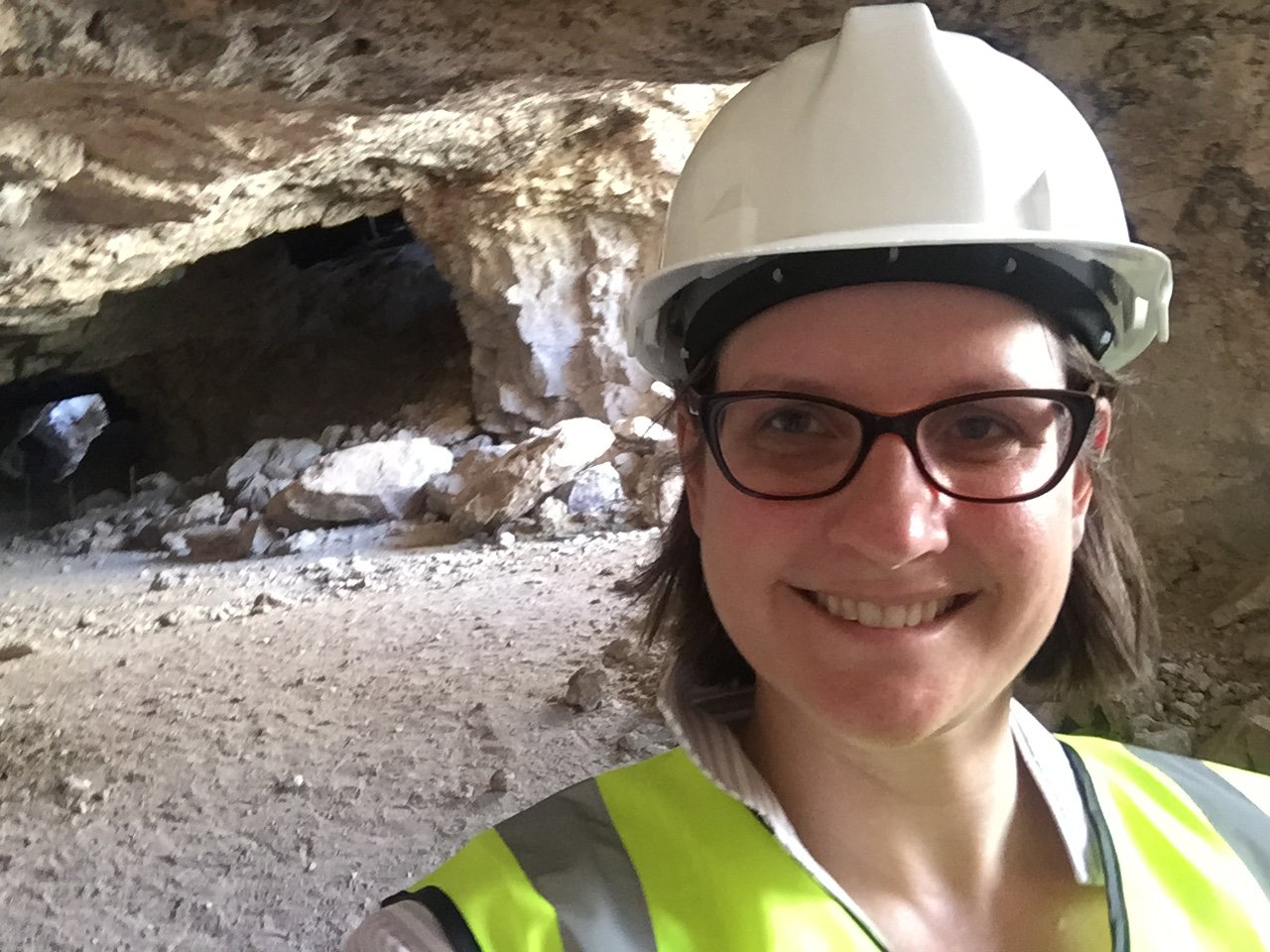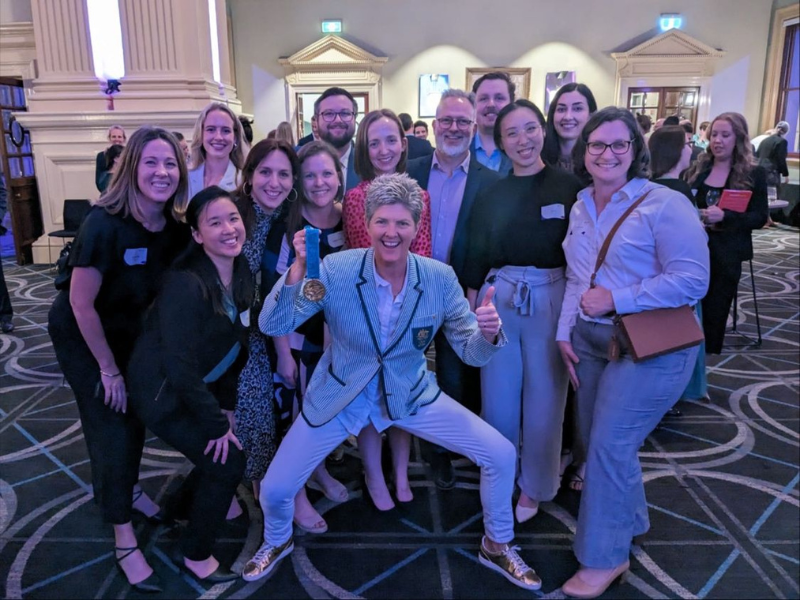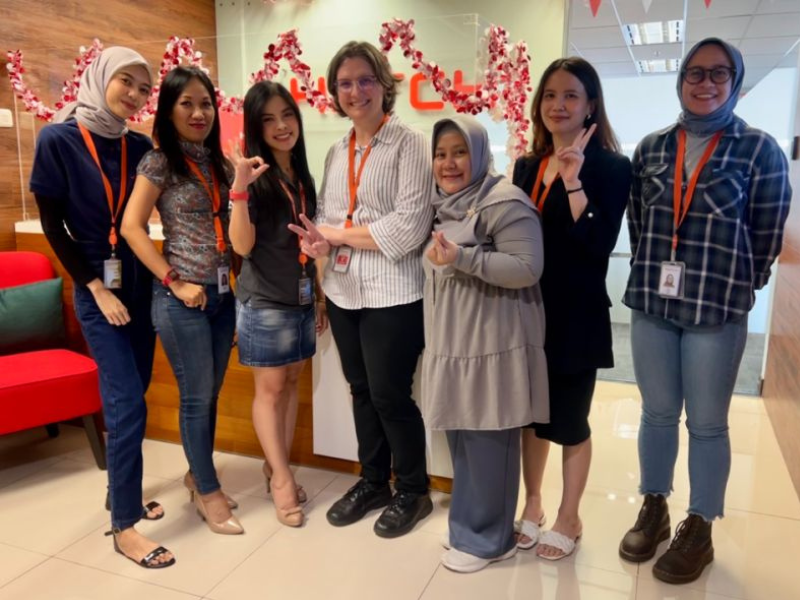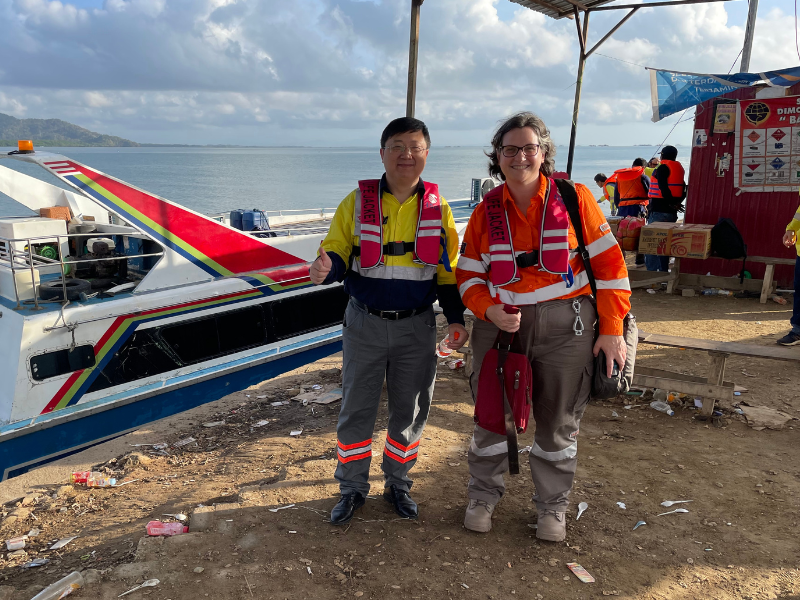Caroline Palmer on the significant shifts in diversity and the path forward
We recently caught up with Caroline Palmer to discuss the evolving landscape of diversity and inclusion in mining over the past two decades, her personal journey as a mentor, unconsious biases and the positive changes she envisions for the future.

Having spent 23 years at Hatch, what are the most significant changes you’ve observed in the industry during this time, especially in terms of diversity and inclusion?
There has been an increase in the representation of women over the years, and at the same time, a general positive shift in attitude towards women too.
When I started after graduating from university, I found it was easier to be seen as ‘one of the guys’. This was something that came relatively naturally to me, but in hindsight I understand why there were so few women in the industry.
Since that time the narrative around diversity (not only gender) has become more mainstream. It is now expected that employers have a strong position on diversity and to demonstrate it. Rio Tinto releasing the external review on workplace culture, the “Everyday Respect Report”, was a big step in the right direction to be open about the topic. It was also an eye opener for the whole industry; clearly the statistics and testimonials were not only representative of the one company.
How has the representation of women in mining evolved over the years, and what role have you played in promoting positive change within your workplace?
The proportion of women has increased, particularly in the younger cohort. It is a slow change, but comparing now to 23 years ago, there is a felt difference.
I have been on a journey myself. I have always seen myself as an engineer, not as a woman engineer. Over the years I have realised that part of attracting more women into the industry is to simply be visible. Be there so that young women can see their future selves and a viable career path, and at the same time, be supportive towards each other – there is an added load to the senior women to become the voice and representation of women in mining.
I take a mentoring approach. I particularly like to help and guide the younger women who have a better chance for a career path that should be free of the gender issues and struggles I had to deal with.

In a predominantly male industry, how did you navigate and overcome any obstacles or biases that may have arisen in your career progression?
With a lot of persistence and by surrounding myself with men that I considered allies and who treated me like an engineer first. There were very few senior women around, and none that I was able to interact with. Having my own unconscious bias was something I struggled with enormously. Often feeling like I was not being heard or listened to, I would adjust and find indirect ways of getting my point across. This was often at the cost of not getting the credit for my good ideas. However, I find this is less of an issue now, particularly with the younger cohort. I feel there is a greater chance for our young engineers to progress with more mutual respect for each other’s opinions and knowledge.
You’ve expressed a passion for teaching and upskilling. How do you approach mentorship, and what lessons do you try to instil in the younger generation entering the mining sector?
Firstly, I always acknowledge that I have my own unconscious bias and that I have a level of conditioning that has resulted from ‘how things were’. I also use learnings from the past to help identify when similar situations or behaviours occur so they can be addressed before becoming a problem or normalised.
I want to stress that finding role models and mentors that you respect is important. There may be a few failed attempts, but a mentoring relationship is like any other, it takes time to determine if it is going to work out. One approach I use to upskilling is finding stretch roles for others. Once this is done however, there needs to be the necessary support for the person to succeed and feel empowered. To the younger generation I would say this: do not be afraid to have a go at doing something new and at the same time seek the support and guidance that you need.

Could you reflect on your experiences as a mentor and discuss the ways your guidance has positively influenced the career paths of those you've mentored, emphasising the importance of avoiding the challenges you faced earlier in your career?
I think it is important to watch out for the tell-tale signs that someone may be encountering the same types of challenges and barriers. Talking about those things openly and working together to find a solution. In group settings, I pay particular attention to noticing if everyone has an opportunity to give their viewpoint and that they are being listened to. Too many times I’ve had the unfortunate experience of being dismissed or my concerns brushed off, so I now use that experience as a way to detect it for others. As a mentor and senior professional, it is important to listen, follow up with actions and be bold in using your influence if it can bring about a more positive outcome.
What role can both individuals and organisations play in further enhancing diversity and inclusion regardless of gender, and what change do you hope to see in the future?
There is a simple mindset shift that needs to continue, not only in our organisations, but more broadly in society.
I am pleased to see more women representation in social media for careers in mining, but at the same time I’d like to see more gender balanced examples on display – men and women working together.
While we are making progress in the workforce, the same balance needs to be seen in the home. Start celebrating the partners, husbands, fathers who chose to stay home or who take time off work to look after sick children. Share in the home mental load. It is slow progressing, but I hope that the momentum will continue to pick up.
In your extensive experience, how has Hatch contributed to enhancing diversity and inclusion initiatives?
Over the past two decades, I have observed both positive and negative situations, indicating what I believe is a broader industry challenge; nevertheless, I am delighted to note that, in my own observation, the positives are on the rise, while the negatives are decreasing.
At Hatch, we have implemented the 'Hatch Manifesto', that talks about the importance of diversity of our teams, being connected, and engaging great people. We invest a lot of time and resources into developing and delivering training to recognise the importance of emotional intelligence. We call this the Manifesto Driven Leadership programme. I am seeing a big difference with this program. People are showing more empathy and have become better listeners.

Caroline Palmer
Initially set on a career path in medicine, a last-minute decision before enrolment deadlines led Caroline to engineering, where she now holds her Bachelor of Chemical Engineering,
Throughout her tenure at Hatch, Caroline has showcased her versatility in various roles. From steering process simulations and project development to serving as a discipline lead and study manager, her expertise spans the breadth of process engineering. Noteworthy was her role as the Chair of the Regional Health and Safety Committee, reflecting a commitment to ensuring a secure and sustainable work environment.
Hatch is a Major Partner for AusIMM's International Women's Day Event Series. For more inspiring stories like Caroline's, follow AusIMM on social media and the hashtag #CelebratingWomeninMining or catch up via our latest news!


